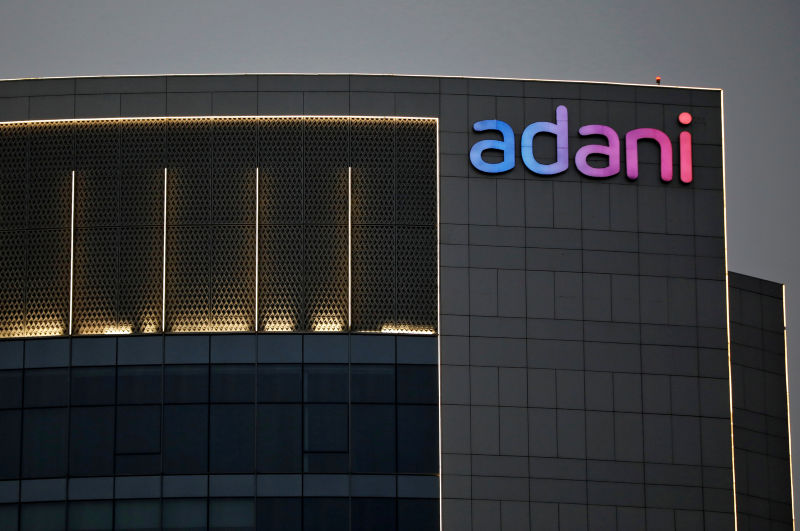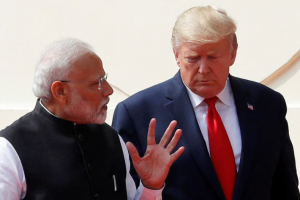Bankers on the $2.5 billion share sale of India’s Adani Enterprises are mulling their options after the Hindenburg report triggered a $50 billion market rout in the conglomerate’s companies.
Bankers are considering an extension of the Tuesday closing date for the subscription of the Follow on Public Offer (FPO) by four days, sources told Reuters on Saturday. They are also considering the possibility of lowering the FPO’s floor price, the sources said, with one saying it could be cut by as much as 10%.
A decision is expected on Monday, sources said. The Adani management is also discussing the share sale internally to decide on next steps, they said.
Also on AF: Indian Regulators to Probe Adani Group After $50 Billion Rout
Adani Group in a statement said: “There is no change in either the schedule or the issue price.”
“All our stakeholders including bankers and investors have full faith in the FPO. We are extremely confident about the success of the FPO,” it said.
Seven listed companies of the Adani Group have lost a combined $50 billion in market cap since Wednesday, after US-based short-seller Hindenburg Research flagged concerns about the group’s ‘improper’ use of tax havens and ‘precarious’ debt levels.
Shares of some Adani Group companies plunged 20% on Friday, with Adani Enterprises ending the day as one the worst performers on India’s Nifty 50. The sell-off dragged the Adani Group’s flagship company 11% below the minimum offer price of the FPO.
Adani had set the share sale’s floor price at 3,112 rupees ($38.22) a share and a cap of 3,276 rupees. But Adani Enterprises closed on Friday at 2,761.45 rupees.
Weak demand on the first day of retail bidding on Friday also raised concerns over whether the share sale would be able to proceed. Subscription of the issue was around 1% at the end of the first day, with investors, mostly retail, bidding for around 470,160 of the 45.5 million shares on offer.
“Everyone was shocked. They did not expect such a poor response,” one source said.
Adani’s 200-billion-rupee ($2.46 billion) public share offering was to be India’s biggest FPO. Its proceeds were to be used for capital expenditure and debt repayment at three units of the Adani conglomerate.
Jefferies, India’s SBI Capital Markets, and ICICI Securities, among others, are managing the sale. The bankers did not immediately respond to requests for comment.
MSCI ‘closely monitoring’ Adani Group
Index provider MSCI said on Saturday it was seeking feedback on Adani Group and associated securities, and that it was aware of the Hindenburg report.
“MSCI is closely monitoring publicly available information regarding the situation and the factors that may impact the eligibility of those relevant securities for the MSCI Global Investable Market Indexes,” it said in a statement.
India’s indexes have slid more than 2% each in the truncated week, their most in a month, with the Hindenburg report triggering panic among investors. US bonds of Adani firms also fell.
Dollar-denominated bonds issued by Adani Green Energy extended this week’s sharp falls to just under 77 cents in the dollar to their lowest since November, Tradeweb data showed.
International bonds issued by Adani Ports And Special Economic Zone, Adani Transmission and Adani Electricity Mumbai also fell.
Meanwhile, sources said India’s capital markets regulator was studying the Hindenburg report as it may help its own probe into offshore fund holdings of Adani Group.
Top banks say exposure within limits
Some of India’s leading public sector banks said on Friday their exposure to the Adani Group was within the limits prescribed by the central bank, assuaging fears of default risks.
Public sector banks in India have in the past been hit by massive corporate defaults, pushing lenders to take measures to clean up their books. Any fresh default by a large corporate, however, could strain their balance sheet.
“There is nothing alarming about our Adani exposure and we don’t have any concerns as of now,” Dinesh Kumar Khara, chairman of country’s largest lender State Bank of India said.
Khara said the Adani Group hadn’t raised any funding from SBI in the recent past. The bank would take a “prudent call” on any funding request from them in the near future, he added.
Adani Group has dismissed the Hindenburg report as baseless and said it was considering whether to take legal action against the New York-based firm.
Hindenburg, on the other hand, said it ‘stands by’ its report. It challenged the group to “file a suit in the US” if it was “serious”.
The ports-to-energy conglomerate, helmed by Gautam Adani – one of the world’s richest men – is no stranger to controversies. The most recent was months of protest by fishermen against construction of a $900-million port in southern India’s Kerala, in which Adani sued the state government and fishermen leaders.
In Australia, environmental activists for years protested against Adani’s Carmichael coal mine project in Queensland on concerns of carbon emissions and damage to the Great Barrier Reef.
Adani saw $22.6 billion wiped off his net worth on Friday. He is now the world’s seventh richest man, according to Forbes, slipping from the third position he held before the Hindenburg report.
- Reuters, with additional editing by Vishakha Saxena
Note: This report was updated on January 29 to include Adani Group’s statement.
Also read:
Adani Shares Plunge 20%, Hindenburg Says ‘Sue in US if Serious’
Adani Mulling Action Against ‘Malicious’ Hindenburg Report
India’s Adani to Use $2.5bn Share Sale Funds on Capex, Debts
Indian Billionaire Adani Says He’s Addicted to ChatGPT – CNN























